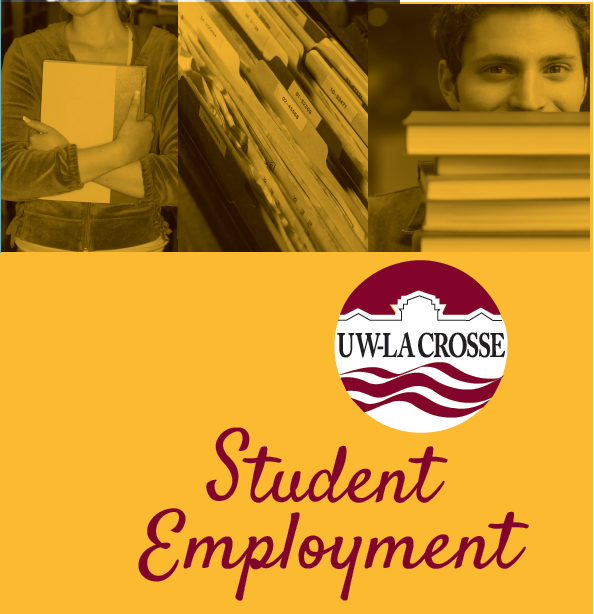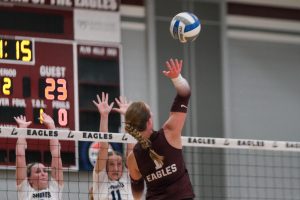UWL student workers discuss income continual payment due to COVID-19
April 9, 2020
On April 8 at 10:04 a.m., the University of Wisconsin-La Crosse director of human resources John Acardo sent an email to all student workers stating, “UWL is providing a one-time COVID-19 student worker income continuation payment to all active student hourly workers who have logged hours on or since March 1, 2020. Students who qualify will receive $100 per week for two weeks for a total payment of $200.”
Although, this excludes any students employed by Chartwells Dining Service or the University Bookstore. It also does not include student workers who are not paid through the UW system payroll, such as those who are paid through segregated fees.
UW-Milwaukee has also rolled out a similar program for student workers. “UWM student employees will receive a one-time, $200 COVID-19 leave payment from UWM. Former and current student employees will receive the payment on April 23 as long as they worked on or since Feb. 1, 2020. Student employees who are still working right now will receive the payment in addition to their regular paychecks.”
Chancellor Joe Gow commented on the decision:
“Our leadership team decided to take this action to help our valuable student employees at a time when their jobs have suddenly been discontinued,” Gow said. “Unlike our full-time employees, student employees are not eligible to receive paid COVID-19 leave for the work they are missing. So the next best thing we could do was to provide them with $100 per week for two weeks for a total payment of $200.”
Bob Hetzel, vice chancellor for administration and finance at UWL explained that the $100 per week stipend was based on calculating the average hours and hourly pay rate for all UWL student workers. The average paycheck totaled $91.55, and a final number of $100 was decided.
The funding comes from departmental accounts across the university. This one-time payment will cost UWL $225,600 and follow similar models from UW-Madison and UW-Milwaukee.
Many students rely on their on-campus jobs to pay rent and bills, and without a source of income, many students are struggling to make those payments.
UWL senior and resident assistant (RA) in Reuter Hall and help desk assistant at Murphy Library Jessica Wener feels grateful to be getting a payment from the university at all. “I feel very appreciative that student workers are getting paid $200. I’m sure depending on the number of hours that some people would work normally they may make more than $200 but I think getting something is better than getting nothing.”
“Due to personal circumstances, I was able to stay on campus but it is a completely different world. I think of my residents as my kids and it was very hard to come back from spring break and find all but three of my residents gone without being able to say goodbye to them. It’s been a bit heartbreaking to be a first-year RA and senior for my year to end like this. It’s hard to acknowledge that I likely won’t experience the closure of saying goodbye to my residents, my Reuter staff team, and [residence] life in general.”
When asked if Wener thought the university was handling the pandemic well she said, “I think the administration has been doing a good job overall. It’s a hard situation with no easy or clear answers. I think it’s important to prioritize health right now and I feel they have to make decisions while keeping us informed.”
Wener said notifying students and faculty that classes are being held online for the remainder of the semester at the same time, and having students living on-campus move out quickly could have been handled better.
Hana Church, a junior at UWL and student worker for the Clery Alumni and Friends Center and the Student Union. She pays $345 per month in rent, which she feels is comparable to what her other friends pay in La Crosse.
She said at first that she was surprised that UWL offered this payment to student workers.
“I received a lot of texts from my friends who are also student workers making sure what we were reading was true. I then felt relief getting this email because this will help cover some of my rent in May. It does make a difference because it shows that the university cares about its student employees,” said Church.
“I just wish the response was more timely or that student employees received an email prior to this just to know that these options were being discussed by the university. Especially since the COVID-19 policy left student employees out. As I said, this was a complete surprise.”
Although Church will be using this money to help cover two-thirds of her rent for May, she wishes the money was more, or students were being paid their original wages.
“I make more than $200 when I am actually working in my positions. I shared this with a co-worker and friend today and she said, ‘something is better than nothing though,'” said Church. “I totally agree with her that we should be grateful, but still continue to advocate for the importance of our positions and wages.”
Church notes that it might be unfair to ask UWL to be paying student workers their usual amounts, considering how COVID-19 has impacted the university, along with the refunds that are now being issued.
She said, “UWL as an institution took a hit as well, having to issue refunds to students regarding housing and meal plans. I am also not sure how any of that money trickles down to student employee budgets but seeing how COVID-19 has affected other businesses and salaries UWL suffered a loss. This is also probably affecting how student employees are being paid.”
Church commented that her departments have been working with her to help find ways to try to work from home and have been supportive through the process.
Lisette Martinez works at It Makes Cents, the money management center at UWL as a financial peer mentor and outreach leader. Her rent is $395 per month, not including utilities.
She has been able to work partially from home during this time. Martinez works at Valley View Mall and has lost her job due to COVID-19 closures. She was excited to get the email because it will help offset her loss from not working retail.
“I will use the money for my living expenses like groceries and personal care items. I wish it was more money, but anything helps since I am not eligible for unemployment benefits or the government payments,” Martinez said.
Martinez is in a unique situation where she is still able to work from home. This only applies to student workers who can virtually do their jobs, such as tutors, assistants, event planners, etc. Students who do more physical labor, or their work does not switch on to online well, do not have this same opportunity.








